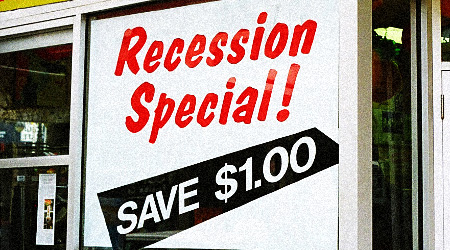How To Invest In Stocks During A Recession

It can be a difficult proposition to pick stocks at any economic time let alone during a recession. Stocks often fluctuate between bear and bull markets and investors have to be prepared for lower portfolio returns and changing gears to match the current economic climate. The options available to individual investors when investing in stocks during a recession will be limited to fund availability and current stock positions. Let's discuss some of the options when making investment decisions in trying economic times..
Stay the Course
For investors with a long time horizon, staying the course and using a buy-and-hold strategy has the highest likelihood of success. That's not to say that an individual stock will not become a poor performer, decreasing in value and should be sold. It means that historically a statistically speaking, purchasing a individual stock and holding it for 10 years or more will lead to better returns than trying to time the market by buying and selling stocks frequently. Strong companies during recessions tend to rebound once economic activity picks up.
Double Down
Multinational corporations often weather the storm of an economic recession fairly well. That doesn't mean their stocks won't drop in value as revenues and earnings decline as a result of a decrease in sales to consumers. If you believe in the strength of a company and its ability to emerge even stronger on the other side of a recession then it may be wise to purchase even more shares. There is a common saying to buy on fear and sell on greed which is often the case during a recession.
Invest in the Best
There are a number of companies which actually do better during recessions and can see their stock increase in value as a result. Fast food and entertainment companies tend to perform better due to their low cost and the consumer's need to do something that's fun. Any company which offers a high-priced product or service is likely to do poorly in a constrained spending environment with consumers cutting back on expenditures. Keep this in mind when looking at different types of stocks to invest in during a recession.
Switch it Up
Not only do individual stock sectors perform differently in a recession but various investment vehicles react to macroeconomic conditions differently as well. A common investment truism is to buy stocks when interest rates are increasing and buy bonds when interest rates are decreasing. During a recession, the federal government tries to stimulate economic growth by lowering interest rates to make borrowing money less expensive. When interest rates decrease, bond values increase in an inverse relationship. If the economy is slowing down and it looks like interest rates will be cut, consider switching from stocks to bonds.
Elsewhere on StockMonkeys.com







